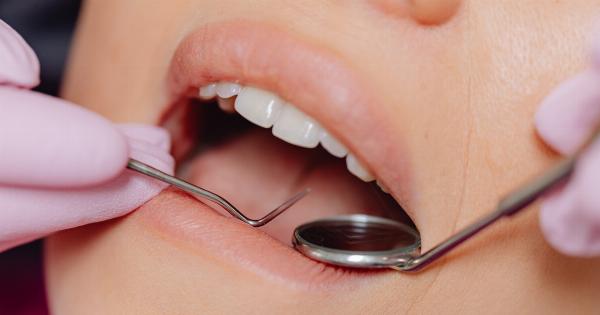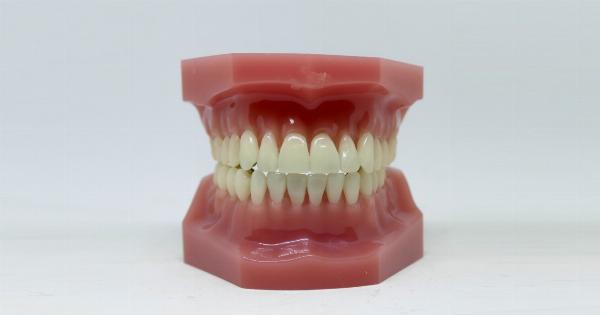Many of us dream of having a beautiful, bright smile and we seek out different ways to achieve it. Teeth whitening treatments have become increasingly popular over the years as a quick and easy way to improve the appearance of our teeth.
However, many people are unaware of the potential risks associated with these treatments. In this article, we will explore the dangers of teeth whitening treatments.
What are teeth whitening treatments?
Teeth whitening treatments are procedures or products that aim to lighten the color of teeth. The most common treatments include:.
- Over-the-counter whitening kits
- In-office whitening treatments
- At-home bleaching trays
How do teeth whitening treatments work?
Teeth whitening treatments use a bleaching agent, usually hydrogen peroxide or carbamide peroxide, to break down stains on the surface of your teeth and brighten their appearance.
These agents penetrate the outer layer of your tooth enamel, breaking down stains and discoloration.
What are the dangers of teeth whitening treatments?
While teeth whitening treatments can improve the appearance of your teeth, they can also have negative consequences. Some of the dangers include:.
Gum Irritation and Sensitivity
Teeth whitening treatments can cause irritation to your gums, resulting in soreness and discomfort. Prolonged use of these treatments can also cause damage to your gums, resulting in a receding gum line.
The bleaching agent can also cause increased sensitivity to your teeth, especially to hot and cold temperatures. Sometimes, these effects can be irreversible.
Enamel Erosion
In some cases, teeth whitening treatments can cause erosion of your tooth enamel. This can weaken the structure of your teeth, making them more susceptible to other forms of damage and decay.
Enamel erosion can also result in increased sensitivity and discoloration of your teeth over time.
Failure to whiten
Teeth whitening treatments may not be effective for all types of stains or discoloration. Some people may have underlying conditions that prevent the treatment from working effectively.
Additionally, some stains may be too deep for the bleaching agent to penetrate.
Breathing Problems
Some people may experience breathing problems if they accidentally inhale the bleaching agent during the treatment process. This can happen if the person is not properly fitted with the trays or if they accidentally ingest the gel.
Inhaling the bleaching agent can cause respiratory problems such as asthma and bronchitis.
Damage to Dental Work
Teeth whitening treatments can damage dental work such as fillings and crowns. The bleaching agent can weaken the bond between the filling or crown and the tooth, resulting in damage or loss of the dental work.
Additionally, teeth whitening treatments may not be effective for dental work, resulting in uneven and mismatched appearance.
Are there any alternatives to teeth whitening treatments?
Yes, there are several alternatives to teeth whitening treatments:.
- Good oral hygiene – Brushing your teeth twice a day and flossing regularly can help to prevent stains and discoloration.
- Dental bonding – This involves using a tooth-colored resin to cover up stains and discoloration.
- Porcelain veneers – These are thin, custom-made shells that cover the front of your teeth, resulting in a bright and even appearance.
- Crowns – These are caps that cover your entire tooth, resulting in a completely new appearance.
Conclusion
While teeth whitening treatments may appear to be a quick and easy solution to achieve a bright smile, they can also have negative consequences.
Before undergoing any teeth whitening treatment, it is important to fully understand the potential risks and benefits. It is always best to consult with a dental professional to determine the best course of action for your individual needs.





























